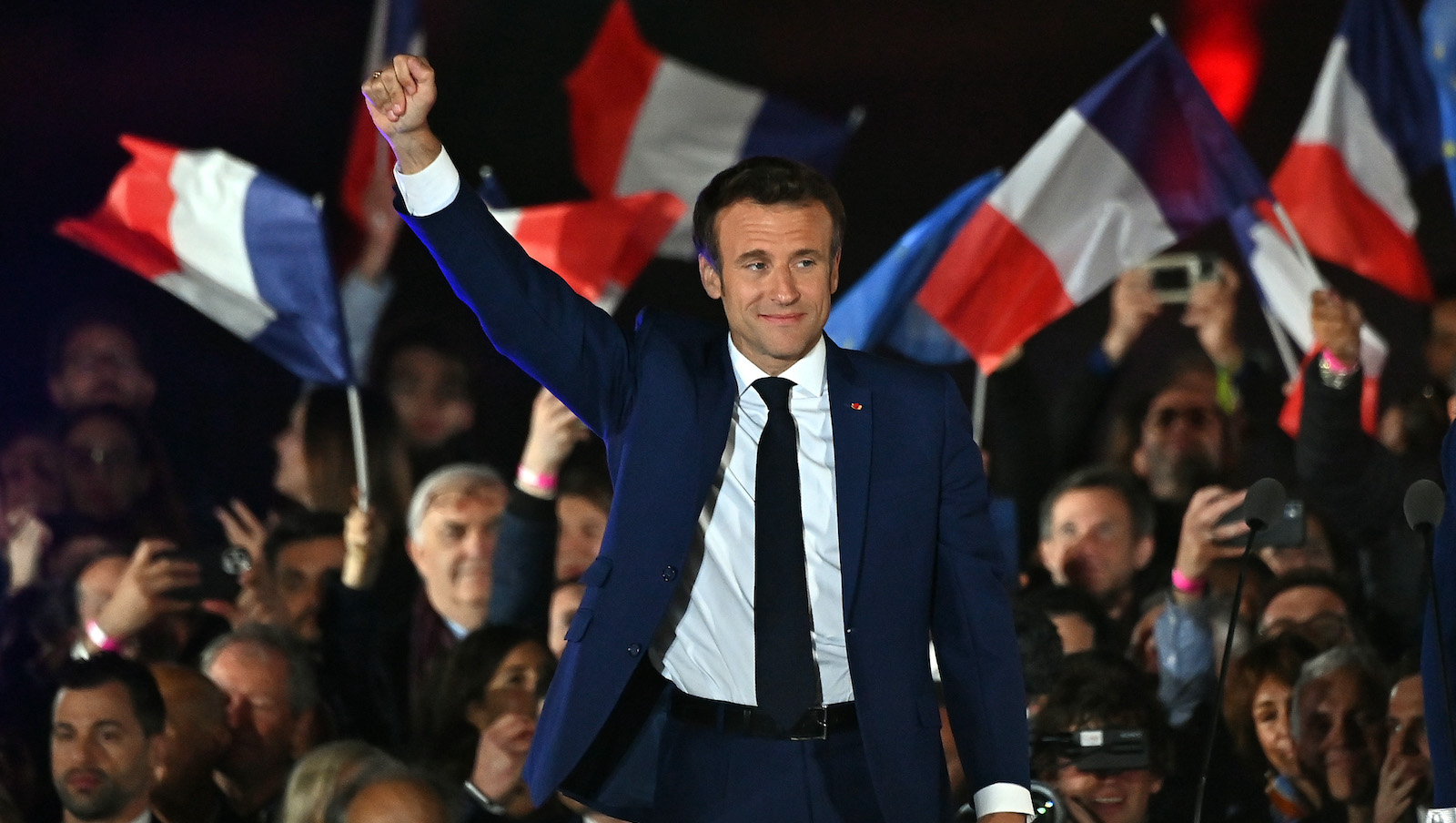Just a few days before France’s presidential election, far-right candidate Marine Le Pen and President Emmanuel Macron spent 20 minutes debating the best way to get France off of fossil fuels. Le Pen, a French nationalist representing the National Rally Party, called Macron a “climate hypocrite.” He jabbed back, dubbing Le Pen a “climate skeptic.”
For the moment, Macron has won out. On Sunday, the sitting French president defeated Le Pen with 58.5 percent of the vote — provoking a sigh of relief from many environmental activists, despite their quarrels with Macron during his previous 5-year term.
Le Pen’s energy plan had called for exiting the European Union’s electricity market, accelerating the development of nuclear power, and establishing a moratorium on wind and solar development. (Nuclear currently provides about 70 percent of the country’s electricity; wind and solar combined provide only about 10 percent.) “Wind turbines are ugly and they ruin our landscapes,” Le Pen said in the April 20 debate. The far-right candidate had also vowed to cut the value-added tax on gas, electricity, and oil from 20 percent to 5.5 percent — a move that would have cost the government up to 12 billion euros (nearly $12.9 billion) and boosted demand for fossil fuels.
Macron, on the other hand, vowed to turn France, the world’s seventh-largest economy, into a “great environmental nation.” He pledged to accelerate the country’s pace of decarbonization twofold, create a new leasing system for electric cars, and retrofit 700,000 French homes a year with better insulation.
The president’s climate policies could also spill over into neighboring European countries. France is currently the leader of the European Union Council, which is tasked with implementing Europe’s “Green Deal” — a massive spending package designed to help the continent get off fossil fuels. And Macron has been one of the most outspoken critics of using Russian coal and oil in the wake of the invasion of Ukraine, calling for an outright blockade on the import of those fuels into the E.U. “The results of elections in France always reverberate way beyond the country’s borders,” Lucie Mattera, head of European politics at the think tank E3G, told E&E News last week. “And 2022 is no exception.”
But critics have argued that the president struggled to implement his climate agenda during his first term. After promising to cut emissions in his first presidential election, in 2017, Macron instituted increases in France’s fuel tax, with the aim of reducing emissions from the transportation sector. The resulting price hike sparked the gilet jaunes, or “yellow vests” movement, with hundreds of thousands of French citizens protesting in the streets.
Chagrined, Macron repealed the tax increases and launched a program of public participation in government — including a Citizens’ Convention on Climate, a randomly selected group of 150 voters tasked with helping the country create new climate policy. The president promised to pass their proposals on to the legislature or to a referendum “without filter” — but there, too, he ran into conflict. After the convention released its 149 proposals, Macron preemptively vetoed three of them, including a tax on corporate profits to fund clean energy. Only a few dozen of the citizens’ suggestions ended up in France’s sweeping 2021 climate law, and those often in watered-down form.
In the short term, the reelected president has promised to create a new prime minister position focused on “ecological planning” and increase investments in renewable technologies. Part of that may be an act of political expediency: Macron was shifted left during the campaign by the popular primary run of the leftist candidate Jean-Luc Mélenchon, who attracted many young voters with his calls for a 200 billion euro ($214 billion) investment in green infrastructure and a constitutional amendment to protect biodiversity. The support for Mélenchon, Macron said in a speech last week, had sent a “powerful message.”



